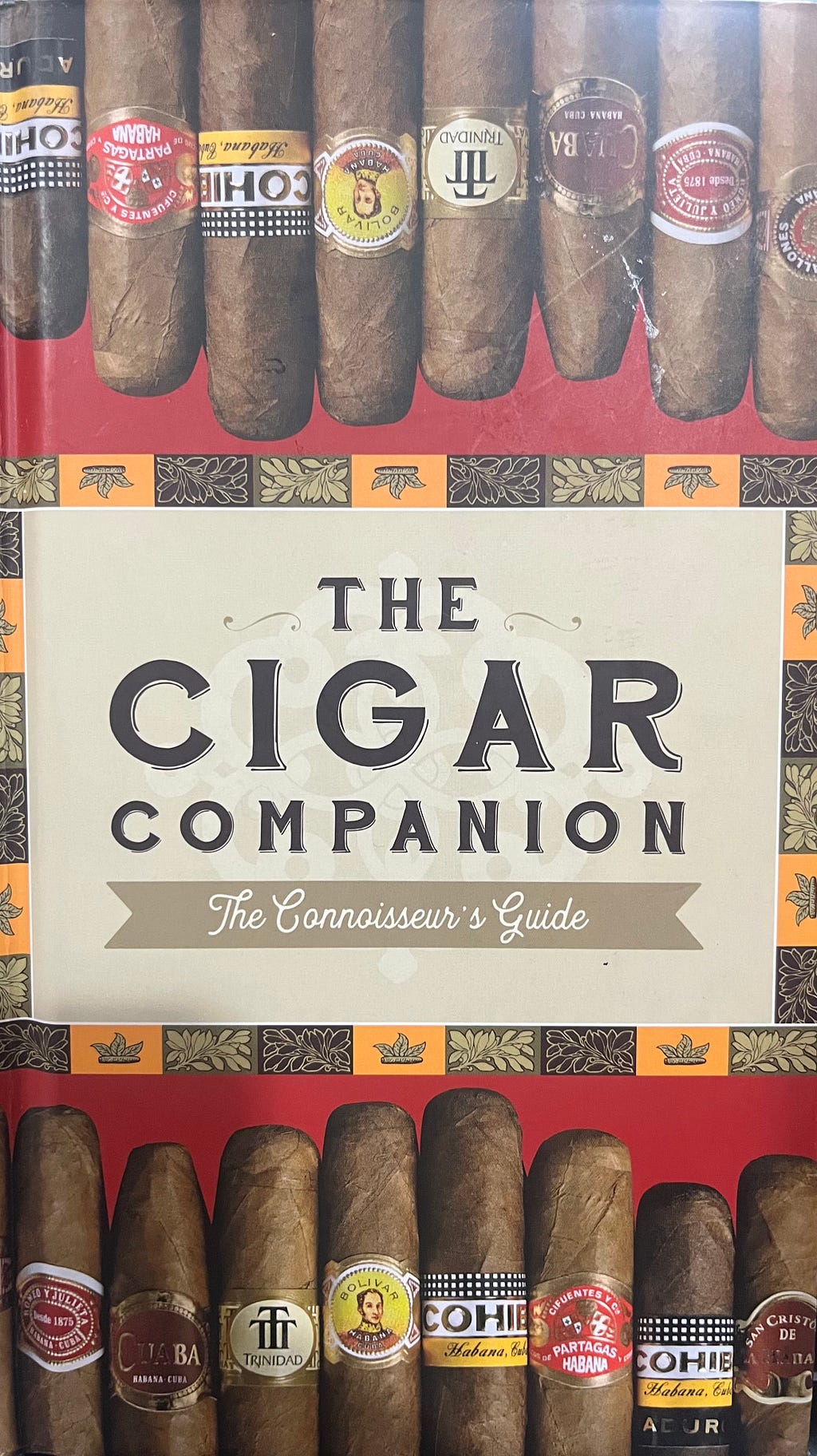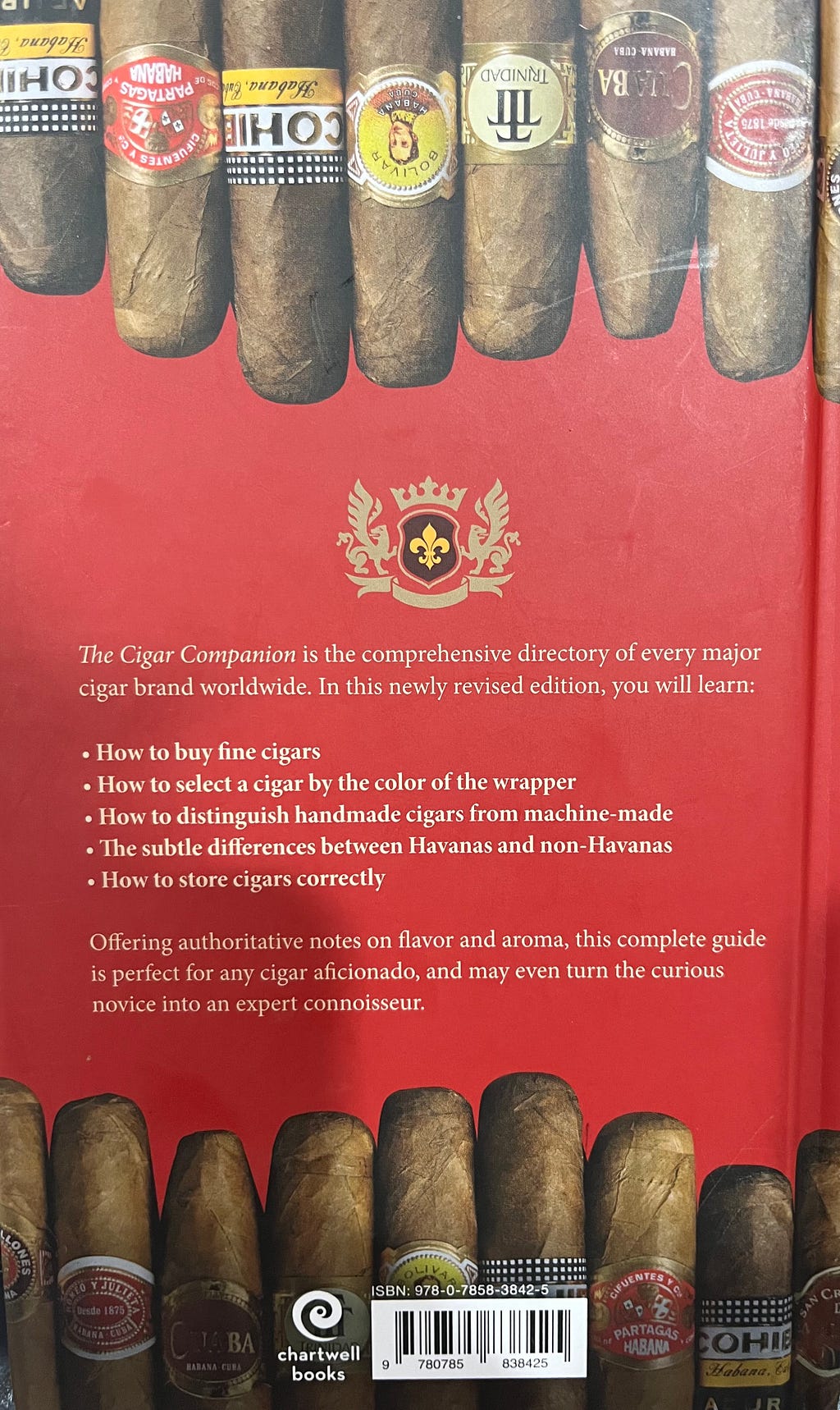

Cigars: A Turbulent to Triumphant Tale
That’s what I would alternatively name this book.
Although I’m in the beginning of this book, I’m realizing a lot of how the history we learned in school, specifically around colonization, came with more elements that we were completely unaware of — the microeconomic impact on trade of goods and services.
I would like to highlight some takeaways that I’ve gathered in my reading so far, and somehow tie it into what I’m working on with merging tech and the cigar industry.
Issa vibe
After the indigenous Americans introduced the concept to Christopher Columbus, initially, various Spanish and European conquistadores became attracted to the habit and it eventually turned into a staple of wealth.
Prominent officials throughout Europe immediately noticed the appeal of cigars so much that an import tax for higher-quality foreign cigars became necessary for governing production and trade.
Transportation of goods, especially luxury goods requires security.
Are you picking up what I’m putting down?
Margin of error
Ferdinand VII, King of Spain, vigorously promoted the production of high-quality Cuban cigars which resulted in a monopoly of premium cigars.
At the time, Cuba was a Spanish colony so it would only make sense to create a great demand for such sentimental goods.
Till this day, Cuban cigars are highly regarded among smokers and non-smokers.
Here’s where Spain messed up.
The habit became a widespread custom throughout much of Britain and France, where smoking cars became a feature of European trains, and the smoking room was introduced in clubs and hotels.
Some would consider that encroachment to the brand of smoking cigars.
I see it as an opportunity.
Let’s assume Ferdinand VII was fully aware of the widespread cigar phenomenon in different forums.
Why didn’t he create a tax reduction that would encourage domestic production? You would think that he could easily employ some Cuban farmers to work directly (and keep some in Cuba) in Spain which would then create an industrial class of agricultural jobs for both economies and continue to drive up the spending on this precious item. Essentially, Spain would’ve undeniably been the emerging marketplace for the Western Hemisphere. It would’ve been a head start for the trajectory of how the West should operate going forward. If you understand the impact that the Spanish-American War had on total colonial power in Cuba, this would make more sense.
The U.S. saw this well into the late 19th Century and acted on it.
In the infamous words of Vice President, Thomas Marshall, “What this country really needs is a good five-cent cigar.” The only problem was they didn’t continue pushing the brand value of cigars, so sales plummeted several years following that statement.
Like any other business, you won’t get everything right in the very beginning, but you focus on what’s wrong and you work to fix it.
Exposed and exploited
During the last quarter of the 19th Century, the Cubans struggled to gain independence from Spain, resulting in many cigar makers emigrating to the U.S. or nearby islands to sustain their industrial working conditions.
The Cubans that moved away sought to be instrumental in the revolt against Spain which was led by José Martí in 1895.
Economic instability influenced these revolutionary movements.
When you don’t nurture an economy to produce, people will flee and find a way to make their business thrive among advocates.
Spain really messed up because they had a a lot of quality territories within their grasp but they couldn’t capitalize.
For Spain, it was about acquiring and not scaling.
Mind you, I like Spain, and I’ve been there about 5 times in my life. So this isn’t a shot at their history as a country, but it’s just to introduce a perspective that I hope would evoke an intriguing conversation especially for my cigar enthusiasts.
CigarTech™️
I see the intrinsic value of the cigar community whether you’re just a shop or you have a full-fledged lounge.
You should too as an owner of any of these entities within the industry.
The cigar world is a delicate place, and if you don’t properly care for it, consumers will become disgruntled and want to take their business elsewhere or otherwise create a demand for a better approach to the market.
I’ve experienced people telling me how their bank accounts have been hacked, extra charges that the lounge transacted without their permission, unauthorized replicate membership accounts, and so on. You wouldn’t believe these things occur, but they do.
So if you’re a cigar lounge/shop/event owner, PROTECT YOUR INFORMATION FROM INFILTRATION.
Thank you for reading and I hope you’ll continue to join me in my journey as a budding tech professional and Founder of Cigar Chef LLC. STICKS UP!!!




